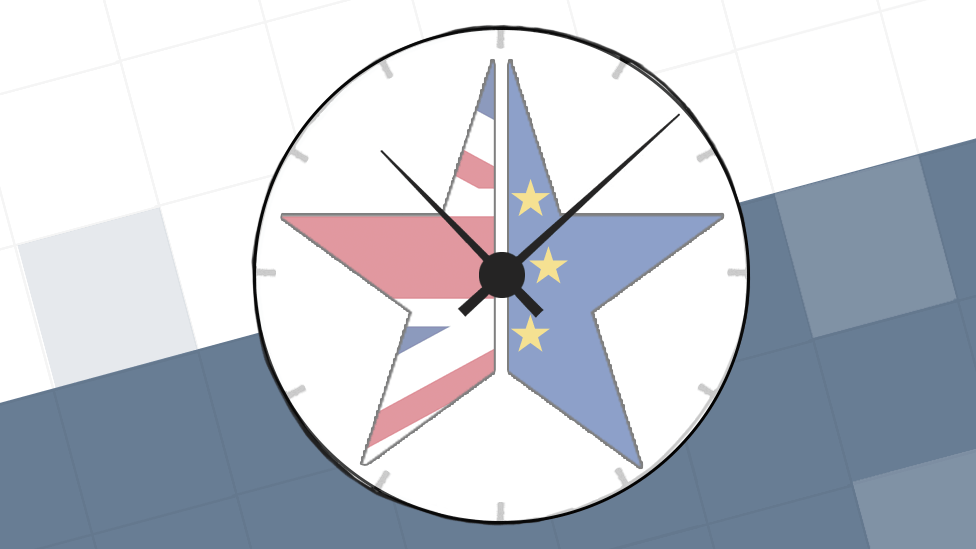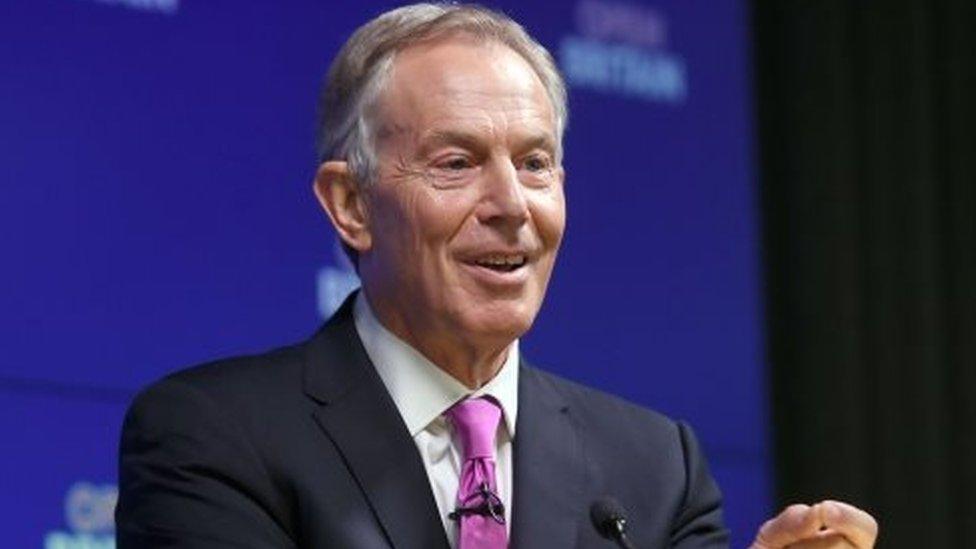PM faces 'almighty row' over Syria strikes
- Published
The PM said the use of chemical weapons could not be allowed
Prime ministers don't choose the decisions that face them. But they have to judge which way to jump.
In 2013, Theresa May's predecessor tried and failed to get approval for military action against President Assad. There was international alarm, then as now, about his suspected use of chemical weapons.
But MPs rejected David Cameron's plan and he didn't try again to persuade Parliament it was necessary.
This time, she has avoided that particular obstacle by taking action alongside the US and France while MPs are away.
Time and again at a press conference at Downing Street this morning the prime minister spelled out the strikes that took place overnight were limited, targeted and a response to the suspected use of chemical weapons in Douma.
With no clear indication of public support or consent, she time and again was at pains to say that she had authorised action for a specific reason - to punish President Assad for gassing his own people, as the government believes he has.
She will face an almighty row in the coming days over going ahead without consulting Parliament.
Her defence is that "security and operational reasons" meant the attack had to go ahead overnight.
That won't wash with her political critics, and Labour is also pushing for more clarity on the legal justification.
To try to close down a giant fight, the government is publishing a summary of the legal advice later today.
But while the strikes themselves were limited, Theresa May's mission is a broader one - to force a return to respect for the international rules that are meant to prevent the use of chemical weapons.
It was notable this morning that she mentioned the attack in Salisbury alongside the use of chemical weapons in Syria - events many thousands of miles and weeks apart, but both using banned substances.
And notable, too, that the prime minister on several occasions did not rule out more strikes. When asked if Assad repeated the suspected attack she said "no one should doubt our resolve". The government's hoped-for outcome is that the RAF, alongside French and US planes, has made it impossible for President Assad to carry out any other chemical attacks.
But if the bombing has not wiped out his capability, and he was to repeat the suspected horror at Douma, the prime minister seems willing to act again.
No 10 sees the actions of the last 24 hours as a direct response to Douma and an effort to stop the slide to a situation where the use of chemical weapons becomes the norm.
As for any British resident of No 10, Theresa May's first decision to take military action is a huge political moment. But clearly it may also not be her last.
- Published17 September 2018

- Published29 March 2018

- Published29 March 2018

- Published25 November 2016

- Published30 December 2020

